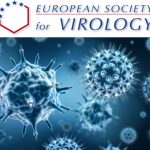The Le Roux lab (Université de Montréal, Canada) is dedicated to unraveling the fundamental principles of bacteriophage-bacteria coevolution in natural populations. Our research focuses on marine bacteria within the Vibrionaceae family, exploring their infective phages, as well as the parasites of phages known as phage satellites.
Key Responsibilities
To identify key mechanisms and genes related to phage infection, host defense, and phage counter-defense you will:
- Conduct genome assembly and phage clustering
- Perform phylogenetic analyses, comparative genomics and genome annotation
- Analyze transcriptomes
- Utilize statistical tools, including multivariate analyses
Requirements
- PhD in genomics or bioinformatics
- Scientific background in microbiology, ecology, and evolution
- Proficient in genome bioinformatics, DNA, RNA, and protein sequence analyses
- Strong knowledge of statistics
- Proficient in at least one programming language, preferably Python and R
About Us
Our lab boasts a rich dataset comprising thousands of isolates and metadata, including time series data. We possess genome sequences of over 600 strains within a single Vibrio species, information on more than 1200 phages infecting members of that species, cross-infection matrix, transcriptomes of our preferred models, and genetic tools for wet lab validation.
Join our dynamic team and contribute to advancing our understanding of microbial genomics in the context of phage-bacteria interactions.
To Apply send your CV and motivation letter to: frederique.le.roux@umontreal.ca
Selected papers
Barcia-Cruz et al. Phage inducible chromosomal minimalist island (PICMI), a family of satellites of marine virulent phages. bioRxiv 2023.07.18.549517.
Piel et al. Phage-host coevolution in natural populations. Nature Microbiology. 2022 Jul;7(7):1075-1086.
Bruto et al. Ancestral gene acquisition as the key to virulence potential in environmental Vibrio populations. ISME J. 2018 12(12), 2954-2966.
Labreuche et al. Nigritoxin is a bacterial toxin for crustaceans and insects. Nat Commun. 2017 8(1), 1248.
Bruto et al. Vibrio crassostreae, a benign oyster colonizer turned into a pathogen after plasmid acquisition. ISME J. 2017 11(4), 1043-1052.




